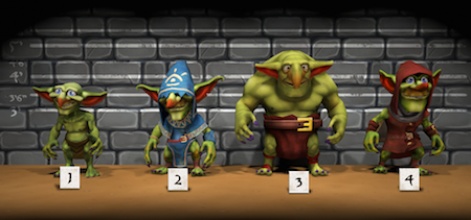Luminary is a developer that wants to do things a little differently and, as the firm prepares to release strategical endless runner Greedy Goblins, it will get a chance to show its credentials.
The young development studio, which is the brainchild of Eric Schiermeyer, a Zynga co-founder and the analytics expert behind its success, intends to break the mould by blending stellar game design with Schiermeyer's vast knowledge of analytics.
Learning from the past
It'd be fair to say that, during his time at Zynga, Schiermeyer's focus on analytics didn't sit well with some employees.
He admits that game designers in particular weren't happy about taking advice from numbercrunchers, who were dubbed 'product managers' and tasked with analysing titles in a more scientific manner.
“It was pretty controversial, but Mark [Pincus] didn’t have any objections to it,” explained Schiermeyer.
“It was me that was forcing it to happen. When I was pushing it, I really pissed off a lot of people.”
Schiemeyer stood firm, believing that analytics gave Zynga a better way of absorbing consumer feedback and improving its games, though he understood that creativty and game design were just as important.

Eventually, due to a dwindling sense of job satisfaction and a stifling amount of internal politics, Schiermeyer decided to leave Zynga, however, he left knowing that analytics and game design could work in harmony, even if most remained sceptical.
Balancing the scales
Fast forward to August 2013, and Schiermeyer, along with David Glenn, a former Zynga and Blizzard developer; Amir Ebarhimi, a former Naughty Dog, Activision, and Unity employee; and Marco Rizzo, a financial expert with a penchant for game design, has just set up Luminary - a seven person studio based in San Francisco.
We aren’t rushing to clone something, be it a game or a company.Eric Schiermeyer
Schiermeyer consciously chose to work with a smaller team as he wanted to move away from the traditional incentives that drive most startups, and instead focus on functionality and large-scale profit sharing.
“We have seen small teams do exceptionally well against large teams,”said Schiermeyer.
“And this compensation structure is aligned with that. There are fewer people taking bites out of the pie, and the pie can be quite large.
"The idea is to immediately pay people out and not wait four years for them to vest."
Smaller the better
A smaller team also means a greater sense of cohesion, a factor that will have helped Schiermeyer convince his employees to embrace both analytics, and creative game design.
Of course, Schiermeyer knows that getting his ideas to stick will be easier said than done, pointing to the fact that while game designers worship creativity, analytics experts worship their metrics.
It beg's the question, can analytics and game design really walk hand in hand? Schiermeyer is a man who believes they can, and more importantly, he believes that his company will answer that question in the weeks, months, and years to come.
“We wanted to do a game company right,” explained Schiermeyer.
“We aren’t rushing to clone something, be it a game or a company. Our founders have experienced many types of startups and established companies.
"We’ve learned a lot from those experiences, and this company is an answer.”
[source: VentureBeat]






















